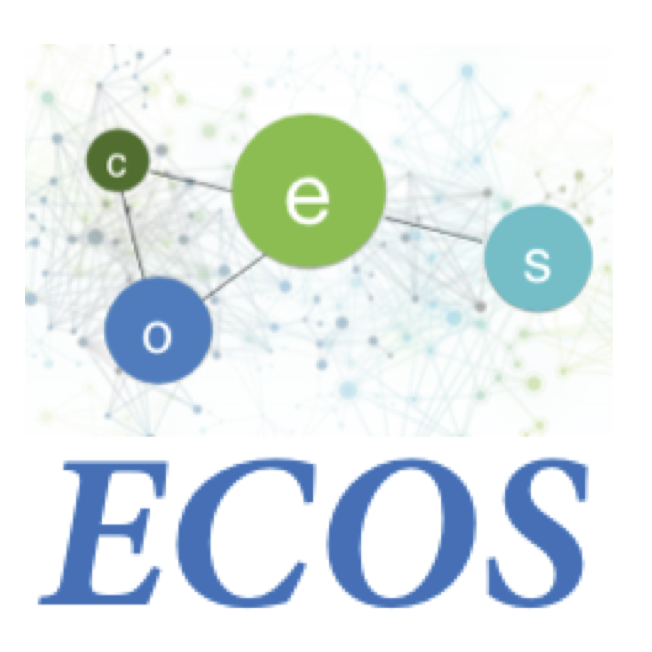
THE ECOS LAB
The ICAR Engineering COmplex and Smart systems (ECOS) Lab
is the evolution of a group born in 2010 from the synergy
of researchers sharing a common vision of research
objectives. People from the ICAR departments of Palermo
and Napoli partecipate in this lab. In these few years,
the ECOS lab has been involved in several projects mainly
in the ICT field. To date, it collaborates with several
universities and CNR institutes. The main research
activities cover the definition of software engineering
techniques for the analysis and design of smart systems,
and, from the techology transfer point of view, ICT
innovation in several contexts such as smart environments,
workflows, e-* (e-government, e-health,…) systems,
logistics, simulations , maritime applications of ICT
systems.
OBJECTIVES
The ECOS Lab aims to contribute to the state of the art in smart systems engineering.
Our effort is specifically directed towards the definition of software engineering techniques for the analysis and design of smart systems that can exhibit autonomous, distributed, self-adaptive and self-organizing (SASO) behaviours. Such techniques will exploit Artificial Intelligence approaches too.
In particular, research activities will focus on the analysis and design of smart systems able to:
-
Exhibit autonomous and proactive behaviour and to make rational decisions according to sensory data in order to pursue some objectives. Such objectives (goals) could be initially unknown and afterwards acquired while running. Due to the nature of these systems data may come from distributed and remote sensors.
-
Deploy its components on distributed computational units, and on Cloud-based computing.
-
Exhibit adaptive behaviours. It means that such systems will be able to effectively adapt their behaviour both to environment changes and to new domain requirements and regulations (self-healing, self -configuration and self- optimization).
-
Self-organize its internal structure, which is generally decomposed into independent and reusable functional units. Such components will be able to organize themselves for finding composed solutions in order to achieve collaborative goals. Such systems will be able to reuse previous solutions in similar problems.
More in details, research activities include:
-
Theories and techniques for goal-oriented adaptive workflow systems;
-
Theories and techniques for normative systems;
-
Design and development processes for AMbient Intelligence (AMI) systems, Self-adaptive and Self-organizing systems;
-
Metamodeling, model driven design, domain specific languages and situational method engineering approaches for the definition of ad hoc design processes;
-
Methodologies and techniques for the simulation of complex systems
RESEARCH AREA
INTELLIGENT AGENTS
ECOS Lab research activities on multi agent systems cover some of their basic aspects. In particular, our study will be directed to explore the fundamental properties, theories and techniques of these systems in order to endow them with advanced features such as adaptation and self-organization properties.
The study starts from the main features of autonomy, proactivity, rational cognitive reasoning and will be directed to the development of theories and techniques for self-awareness, self-adaptation and agents coordination. Particular attention will be paid on some specific aspects of multi-agent systems such as their architecture and social structures (especially the holonic ones), the ability to self-organize in such structures (self-organization), the role of norms in such systems and in their behaviour at both the individual and society level.
Cognitive abilities of the agents, their autonomy and proactivity are seen as essential ingredients for achieving the most advanced properties (such as self-adaptation and self-organization seen before). In this context, particularly interesting is the cognitive architecture known as Belief-Desire-Intention that is adopted in most studies.
SMART SYSTEMS
ECOS Lab research activities in the field of smart systems are aimed at increasing the autonomy, intelligence and organizational ability of cognitive systems by introducing strong adaptivity. These researches will be initially applied to workflow management systems and, more generally, to business process management.
Strong Adaptivity is the capability of a system to adapt its behaviour both to evolving user requirements and to environment changes. This capability is realized in such a way to make the system independent from the application domain.
The system will also be endowed with ability to adapt itself to the rules and laws that usually govern an application domain. This system feature is particularly important in distributed application scenarios (e.g: Cloud) and in interconnected workflow systems for public administration and / or for large companies / institutions of different countries.
This way to conceive smart systems find application in many fields, such as Ambient Intelligence (AMI), simulation systems (agents), smart cities, smart energy transport systems (smart energy grids), smart energy management.